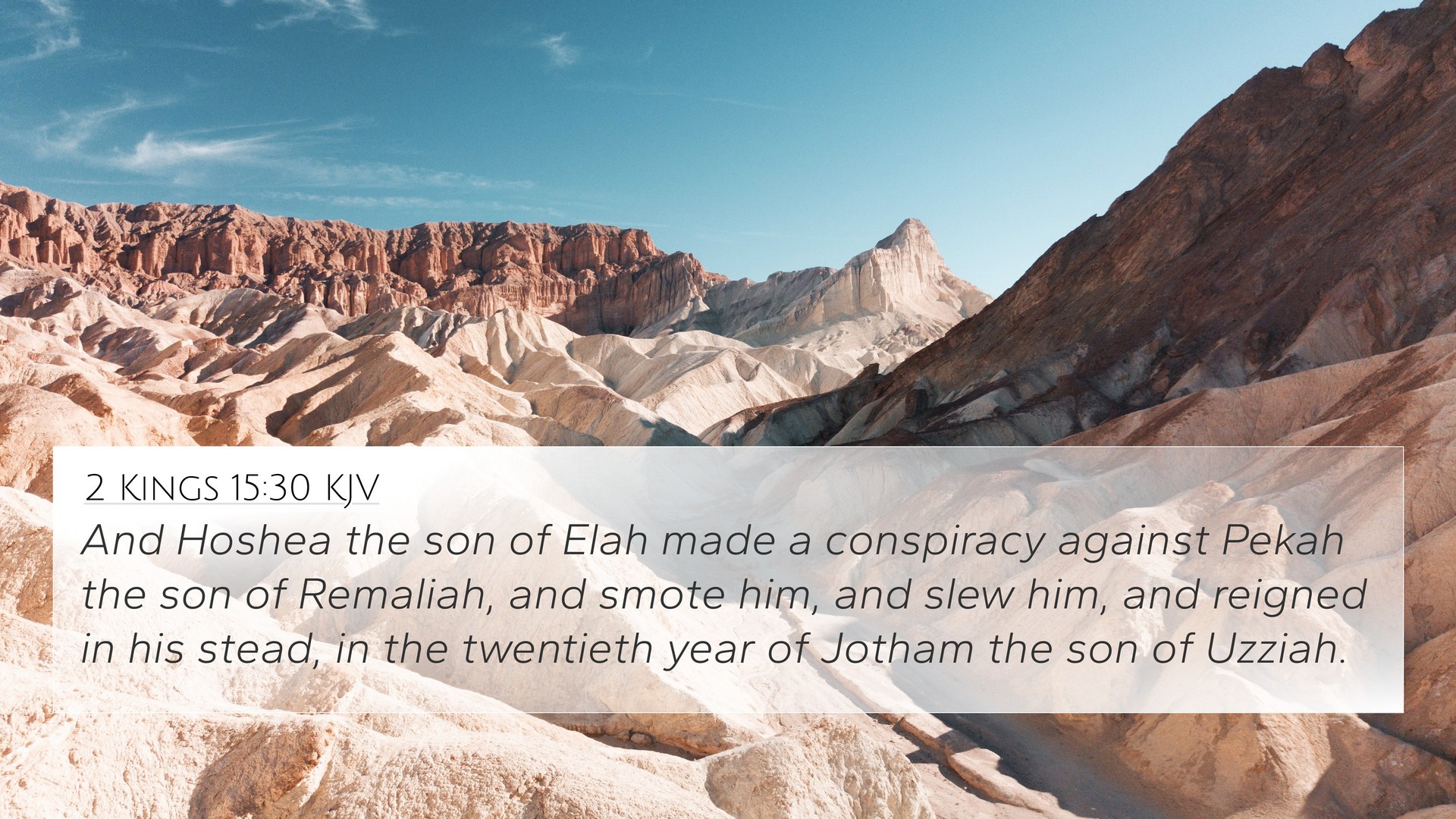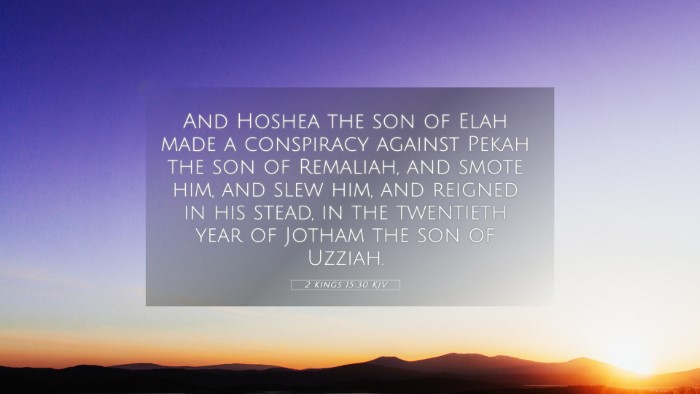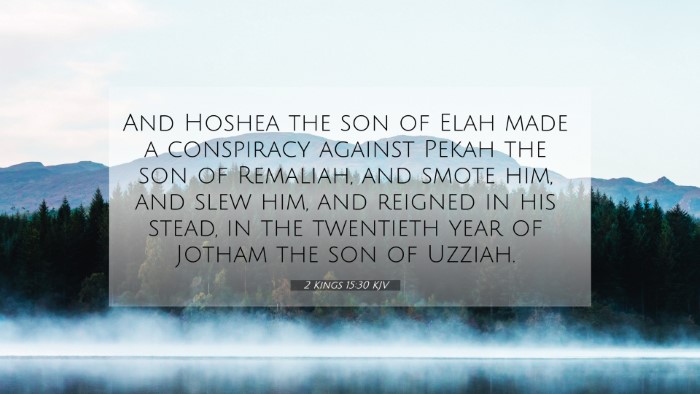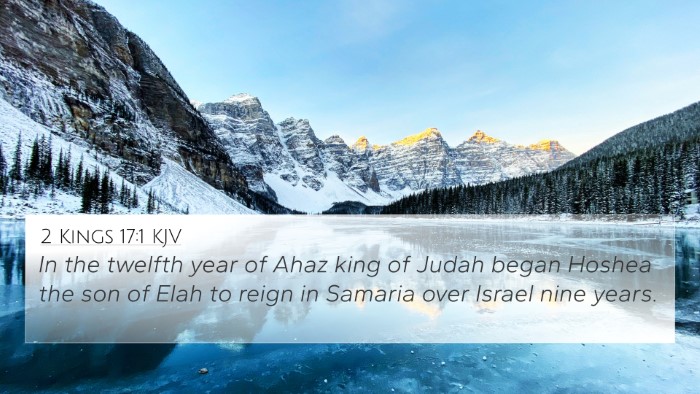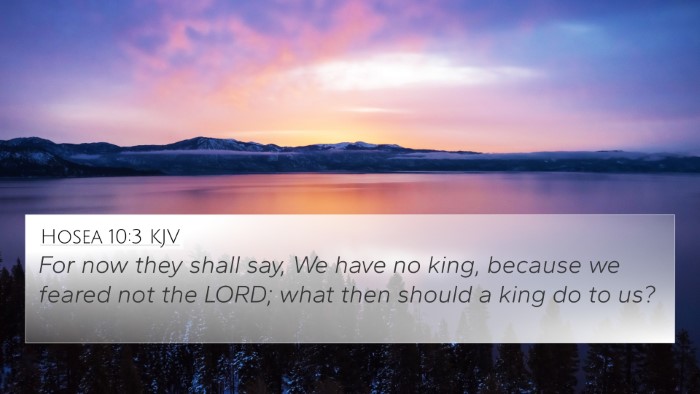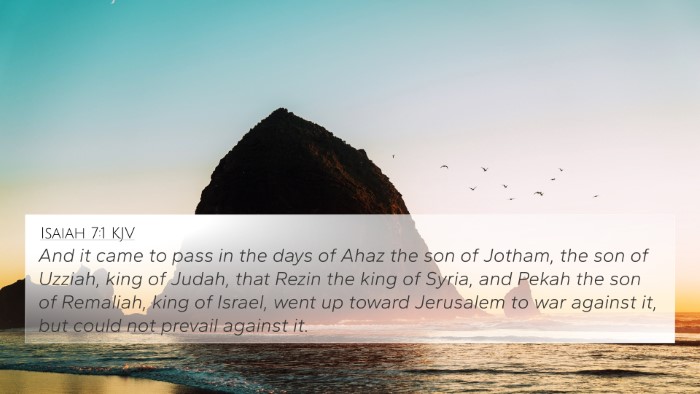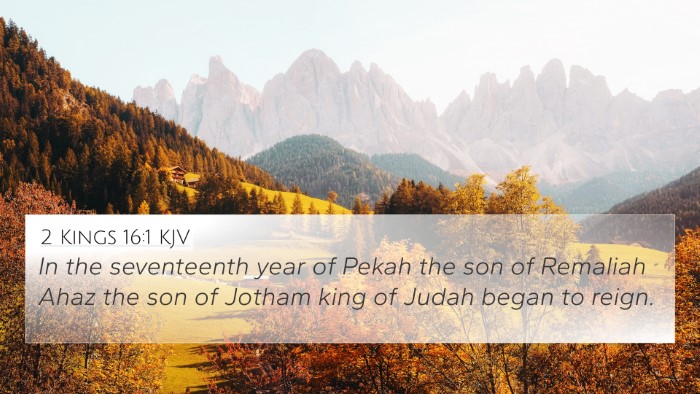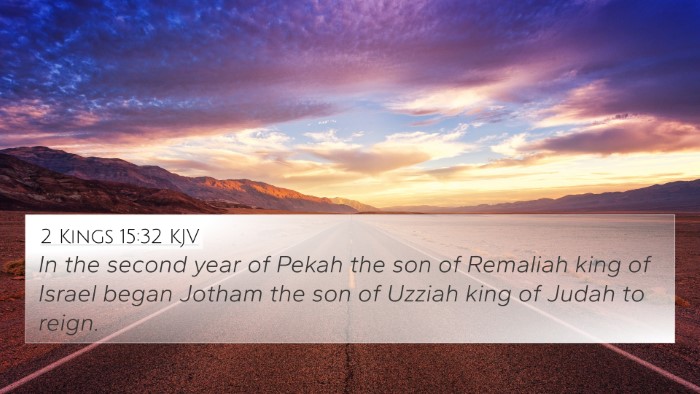Understanding 2 Kings 15:30
2 Kings 15:30 states: "And Hoshea the son of Elah made a conspiracy against Pekah the son of Remaliah, and smote him, and slew him, and reigned in his stead, in the twentieth year of Jotham the son of Uzziah."
Summary of Meaning
This verse describes the political intrigue and assassination that were common in the history of the kings of Israel. Hoshea, a lesser-known figure, rises up against Pekah and takes the throne, illustrating the instability and violence that characterized much of the northern kingdom.
Insights from Commentaries
-
Matthew Henry:
Henry emphasizes the quick succession of leaders and how this leads to a tumultuous period in Israel's history. He highlights that such actions were often a consequence of idolatry and unfaithfulness to God, leading to a breakdown of societal order.
-
Albert Barnes:
Barnes points out the significance of Hoshea's actions as part of a divine narrative. He suggests that these events were foreseen by God and were part of the larger plan for Israel, demonstrating that even amid chaos, God’s purposes prevail.
-
Adam Clarke:
Clarke provides historical context by explaining the backdrop of this assassination and its implications. He delves into the names and places mentioned, linking them to the broader history of Israel ensuring that readers understand the political landscape of the time.
Bible Verse Cross-References
This verse relates to several other Scriptures which can shed light on the themes of conspiracy, betrayal, and the divine sovereignty over Israel's history:
- 2 Kings 14:29: Discusses the end of Jeroboam II's reign, setting a context for subsequent rulers.
- 2 Kings 15:25: Describes the violent reign of Pekah, showing the cycle of violence that leads to Hoshea's rise.
- Isaiah 7:1-2: References the political climate of the time, including alliances and betrayals.
- Hosea 1:1: Places Hoshea within a prophetic context, connecting his reign to God's messages through prophets.
- Micah 1:1: Links the prophetic messages to the reigns of kings in Israel, showing a broader theological theme.
- 2 Chronicles 28:6: A parallel account that highlights the violent nature of God's judgment during this period.
- Matthew 26:14-16: Offering a New Testament perspective on betrayal for profit, mirroring the motives behind political assassinations in the Old Testament.
Thematic Connections Between Bible Verses
The themes in this verse also draw connections with various scriptural narratives:
- Reflection on the instability of leadership in ancient Israel and parallels in modern governance.
- Comparison with David’s rise to power following Saul’s fall, highlighting the human struggle for power often marked by conflict.
- Links to the prophetic warnings about the consequences of turning from God, as exemplified in Jeremiah.
Using Bible Cross-References for Deeper Understanding
Utilizing tools for Bible cross-referencing enriches one's study. A comprehensive cross-reference system can aid in:
- Understanding the continuity of themes throughout Scripture.
- Identifying how Old Testament events foreshadow New Testament revelations.
- Preparing sermons and teachings by providing a robust framework of related scriptures.
- Enhancing personal Bible study with a Bible concordance and cross-reference guide.
Conclusion
2 Kings 15:30 is not just a historical footnote; it speaks volumes about the nature of power, divine sovereignty, and the recurring themes of conflict and betrayal throughout the Bible. By cross-referencing these verses and understanding their context, one can gain valuable insights into both the Old and New Testament, creating a rich tapestry of biblical knowledge and application.
